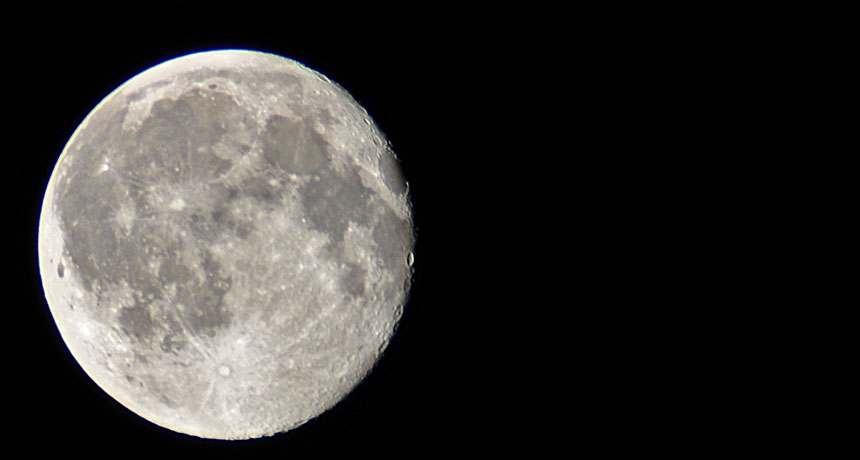Scientists Say: Satellite
This word can refer to more than a spying spacecraft

Our moon is one example of a satellite, an object that orbits another, larger body in space.
dingopup/Flickr/(CC-BY-SA-2.0)
This word can refer to more than a spying spacecraft

Our moon is one example of a satellite, an object that orbits another, larger body in space.
dingopup/Flickr/(CC-BY-SA-2.0)